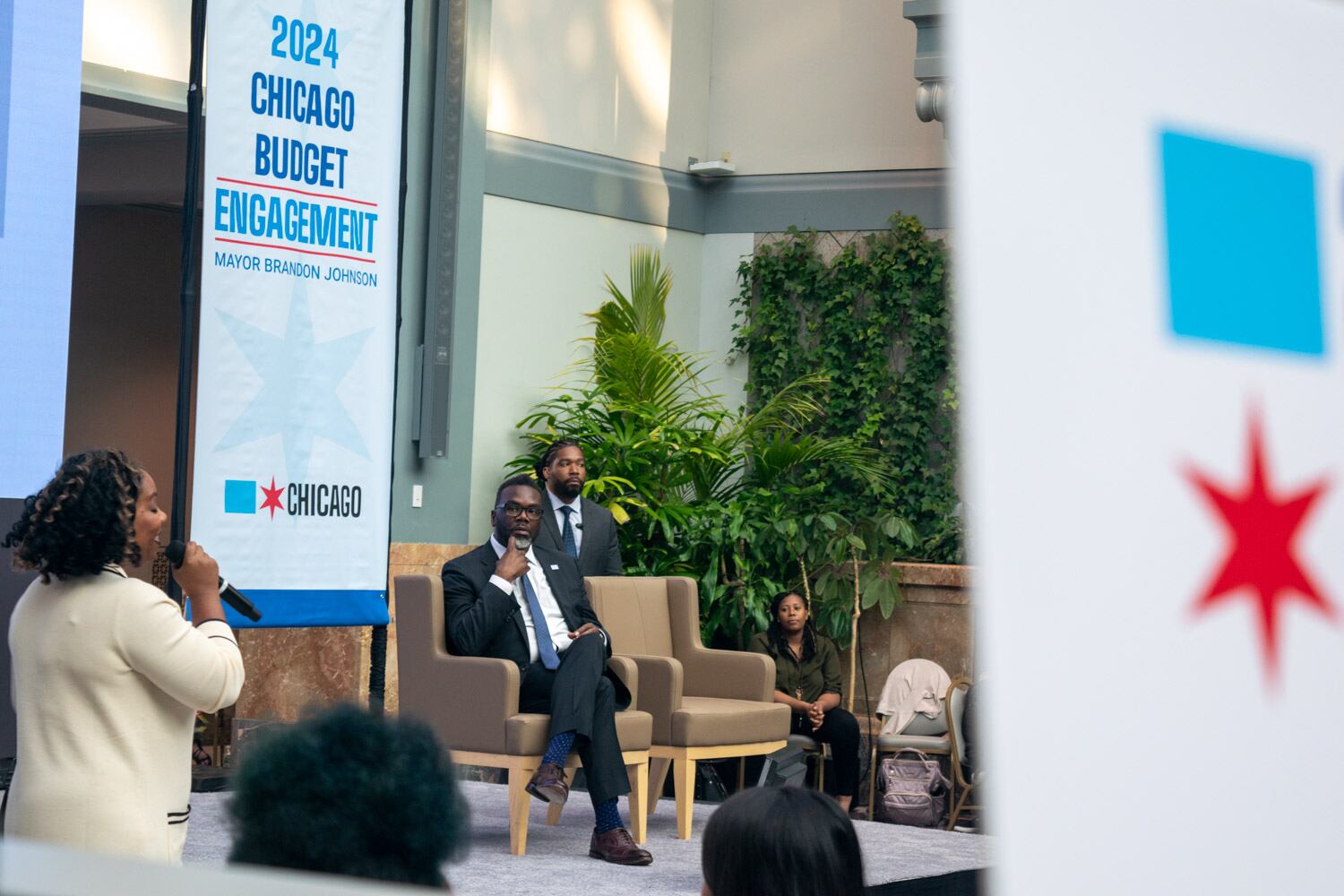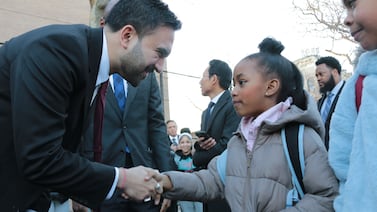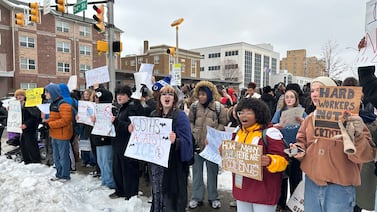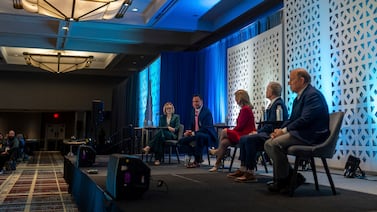In a new move for Chicago’s budget process, Mayor Brandon Johnson put out a call to the city’s young people: He wanted to hear what their priorities for spending are.
They responded in force. Within a week of the announcement, pre-registration for a youth roundtable was full. About 350 teens and young people showed up for the event on Tuesday, eager to talk about issues ranging from environmental justice and public health to education and affordable housing.
Johnson told the youth, ages 13 to 24, not to hold back on their opinions. Their input will inform a report laying out budget priorities, he said.
“Some people will try to write you off and say you don’t know enough because you’re not grown. On the contrary, I think you may know more,” he said. “Your unique voices and perspectives and lived experiences have the power to open our eyes to something we didn’t see before.”
The event was a new addition to the city’s typical budget process, which includes public hearings, ahead of the mayor releasing a proposal to the City Council by Oct. 15.
It was Christa Lawson’s first time participating in an event like this. She’s 14 years old. Her priority? Community safety and mental health.
“(There’s) a lack of mental health resources and a lack of people being able to feel vulnerable in their neighborhood and be able to talk to someone,” she said.
Faith Townsell of North Lawndale, an intern for the mayor’s office, helped put the roundtable together. In the past, she said, she had attended a feedback event on the city budget, but the jargon tossed around made it hard to understand what was going on.
Townsell pointed out the diversity among the audience, not only in terms of race, but also in terms of the schools that the participants attend — not just selective enrollment schools, but neighborhood schools, too.
“I feel really, really encouraged,” Townsell said. “So many people care about the city and it shows that young people really do have a voice.”
At the roundtable, in the Winter Garden at Harold Washington Library, teens and young adults sat at tables marked with topics: public health and mental health; affordable housing and homelessness; environmental justice and infrastructure; neighborhood and community development; and community safety. Volunteers at each table took notes and helped move the conversation along, asking young people what ideas they had for investment.
After about 25 minutes, the young people switched tables for another discussion. Participants could also fill out surveys. At the end of the event, five participants over the age of 16 were randomly selected to win Lollapalooza passes.
Though Chicago schools weren’t on the official list of topics, many young people told Chalkbeat that education frequently came up in their discussions.
Jayla Anderson-Westbrook, 15, said she felt excited to share the changes she wants implemented — including more services in schools to support mental health.
“We talked about getting social workers and psychologists to schools — public schools, not just private schools — that look like us and that could connect with us,” Anderson-Westbrook said.
The largest revenue source for the Chicago Public Schools’ budget comes from city taxpayers. But late last month the school board already approved a flat $9.4 billion for the upcoming 2023-24 school year.
The city’s budget covers a host of services — not only public schools but also libraries, public health, and policing. Unlike Chicago Public Schools, the city budget operates on a calendar year and must be approved by the end of the year. Typically, City Council votes on it before Thanksgiving.
As Johnson plans his budget proposal, participant Aujane Williams, 17 of Roseland, had a message for the mayor: “Don’t forget about the little people.”






